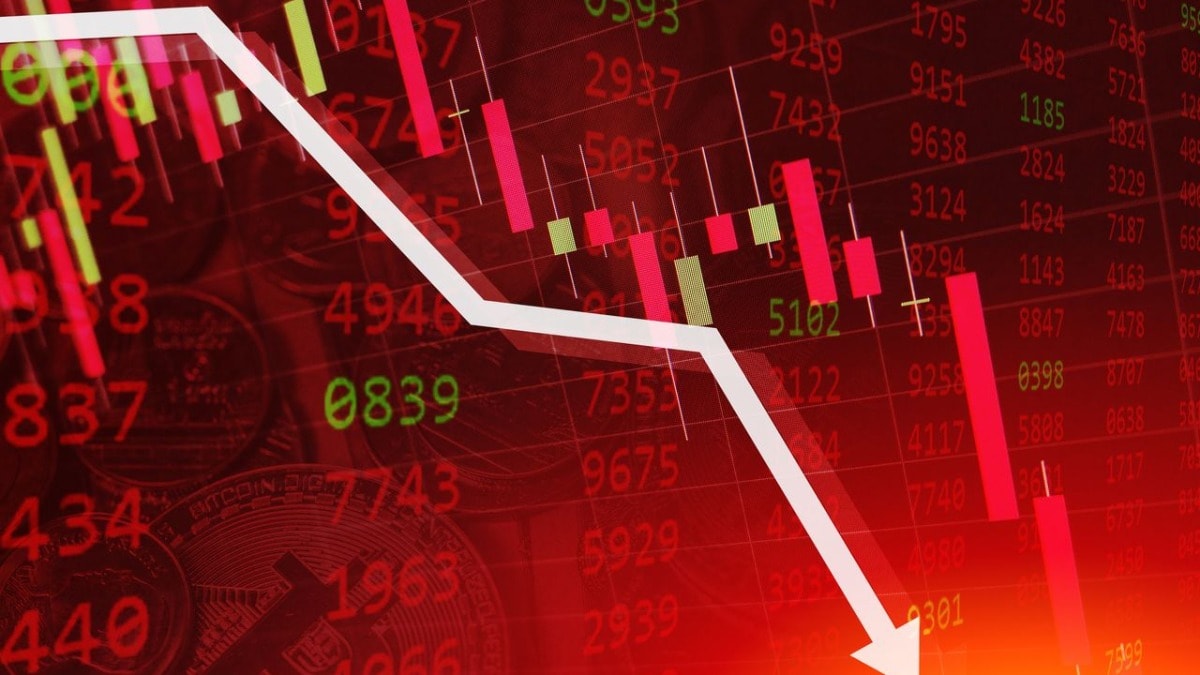There was a significant drop in the Indian stock market today due to various reasons such as tensions in the Middle-East, high US dollar rates, and FIIs selling off their investments. The Nifty 50 index and BSE Sensex both saw considerable losses over the past few sessions. The Bank Nifty also experienced a sharp decline since last week’s close.
In the past three trading sessions, the stock market took a significant hit. The Nifty 50 index dropped by almost 650 points, the BSE Sensex lost around 2,200 points, and the Bank Nifty index plummeted by 2,700 points. However, there seems to be some early signs of recovery today as the small-cap index is up by nearly one percent, and the mid-cap index is up by around 0.40 percent.

The Indian stock market is down today primarily due to increasing tensions in the Middle East stemming from the Israel-Iran conflict. Other contributing factors include the strengthening US dollar and Treasury yields, foreign institutional investors selling off stocks, a depreciating Indian National Rupee (INR), and higher crude oil prices. These combined issues have led to a decline in the Indian stock market as investors react to the uncertainties in the global and domestic economic landscape.
The fall in the Indian stock market is attributed to five main reasons, according to experts:
1. Tensions in the Middle East due to the Iran-Israel conflict are causing uncertainty in the region, leading to selling in the Indian equity market.
2. Global markets are weak following the escalation in the Middle East. This has sparked selling in stock markets worldwide, including the US stock market, with major Asian markets like Nikkei, Hang Seng, and Kospi trading lower.
3. The US dollar is getting stronger, reaching a 34 – Year high against the Japanese Yen, which has led to a rise in US Treasury yields and selling in global stock markets, including India’s. This trend is expected to continue.
Additionally, crude oil prices are soaring to six-month highs in both domestic and international markets. Fuel prices have increased by 6% in March 2024 and by over 3% in April 2024. This surge in oil prices is concerning as it could put pressure on local currencies and lead to inflation, impacting the global economy negatively.
The opinions and advice mentioned above are from analysts or broking companies, not from Golden Headline. It’s best to consult with certified experts before making any investment choices.
